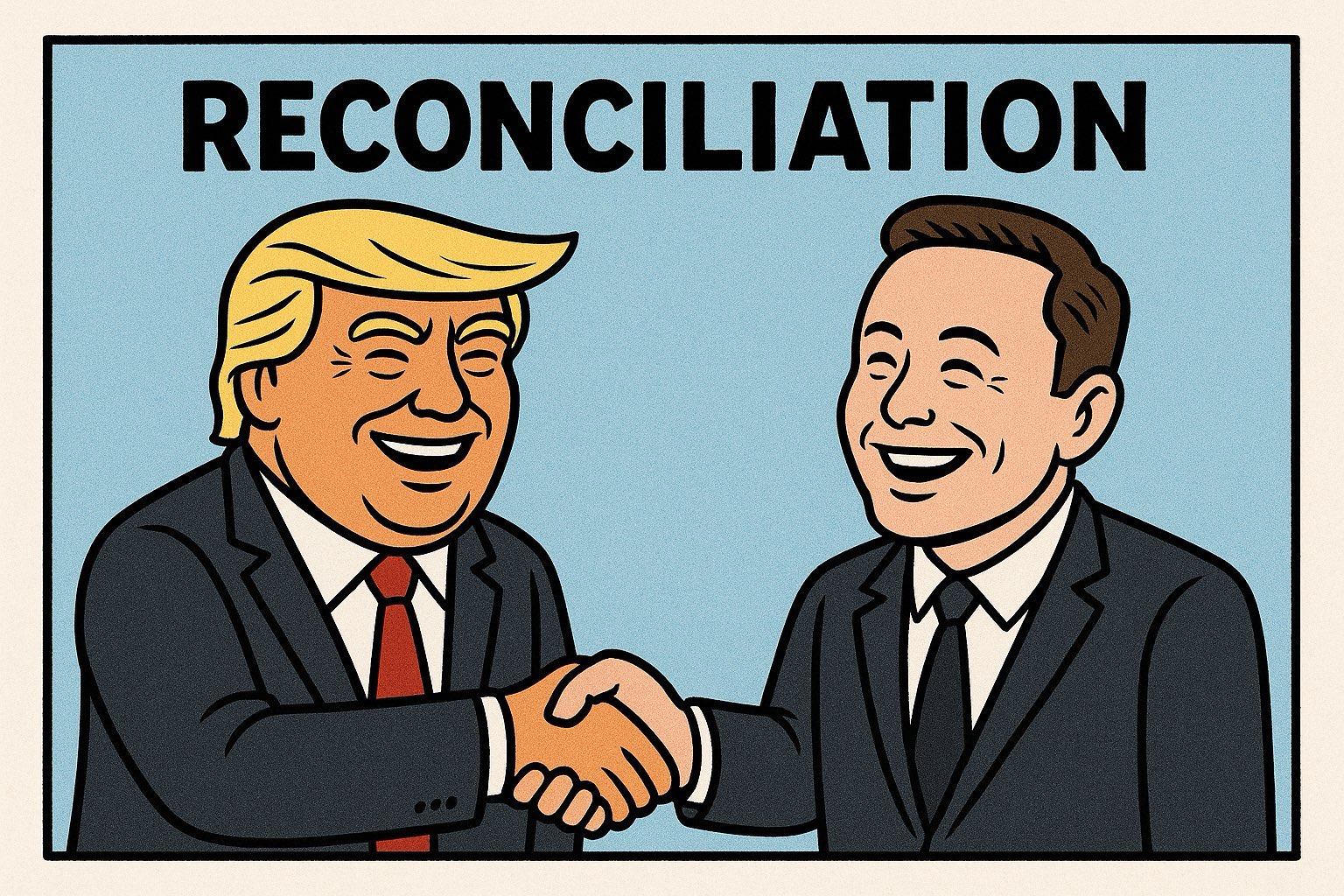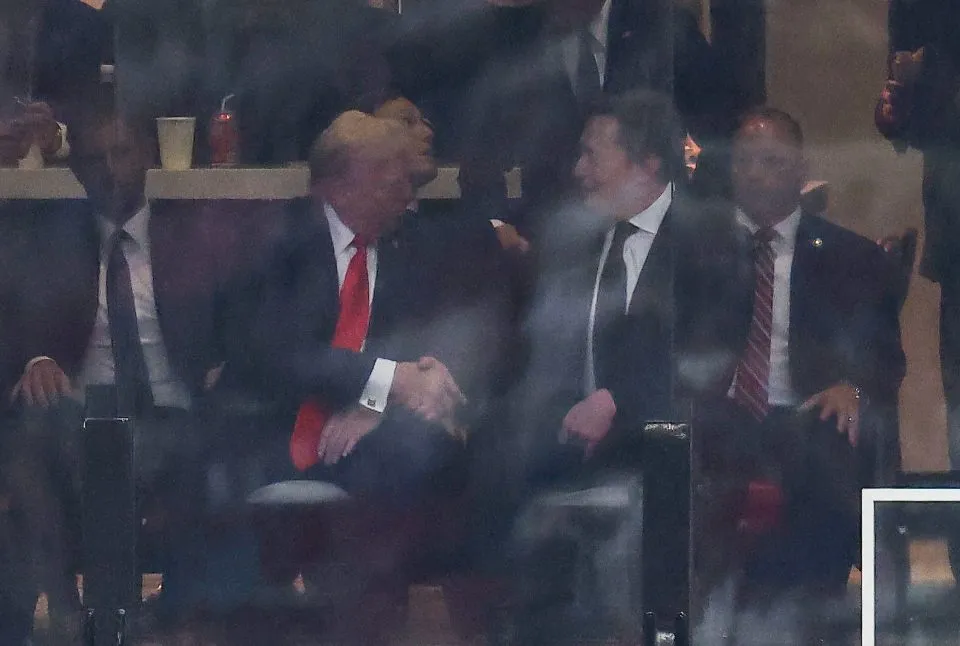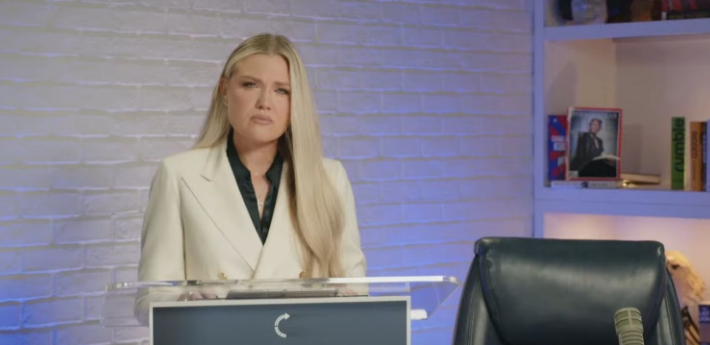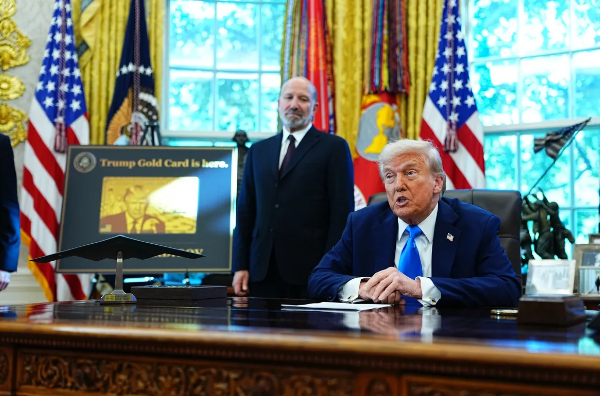Trump Rekindles Ties with Musk as Immigration Overhaul Targets High-Stakes Talent
In the shadow of a somber memorial, President Donald Trump and Tesla CEO Elon Musk bridged a once-bitter divide, signaling potential renewed collaboration at a time when Trump's aggressive policy

In the shadow of a somber memorial, President Donald Trump and Tesla CEO Elon Musk bridged a once-bitter divide, signaling potential renewed collaboration at a time when Trump's aggressive policy shifts are reshaping America's economic landscape.
The handshake, captured amid tributes to slain conservative activist Charlie Kirk, arrives just as Trump unleashes a transformative immigration agenda—one that imposes steep financial barriers on skilled workers while carving out gilded pathways for the ultra-wealthy. This dual narrative underscores Trump's unyielding focus on economic nationalism, blending personal alliances with fiscal maneuvers that could redefine U.S. competitiveness in global talent wars.
The Reunion: Healing Wounds in Arizona's Heat
At Glendale's State Farm Stadium, where thousands converged to honor Kirk—assassinated on September 10—Trump and Musk shared a moment that echoed beyond personal reconciliation. Musk approached the president, shook hands, and settled into a nearby seat for a brief chat. Later, Musk posted a photo on X with the caption "For Charlie," a nod to the fallen figure who had predicted their eventual mending.

This encounter marks a stark pivot from June's public spat, ignited by Trump's sweeping tax and spending legislation, dubbed the One Big Beautiful Bill. Musk lambasted it for ballooning national debt and axing incentives vital to Tesla's electric vehicles and solar products. The feud escalated dramatically: Musk floated impeachment, claimed credit for Trump's electoral win, warned of tariff-induced recession, referenced Epstein files, and threatened to ground SpaceX rockets—critical to federal operations. Trump countered by vowing scrutiny of Musk's subsidies via the Department of Government Efficiency, which Musk himself leads, and dismissed any repair efforts in an NBC interview, citing disrespect to the presidency.
Yet Kirk's widow, Erika, invoked forgiveness in her address, a theme Trump acknowledged but resisted, admitting his inability to extend goodwill to opponents. The reunion, against this backdrop, hints at pragmatic necessity. Musk, once the GOP's top 2024 donor and a White House insider, remains pivotal to Trump's efficiency drives. Their alliance, fractured over fiscal policy, could now bolster initiatives like debt reduction—areas where Musk's influence might prove invaluable amid mounting economic pressures.

A $100,000 Gatekeeper: Reshaping the H-1B Landscape
Shifting from personal drama to policy muscle, Trump on Friday delivered his boldest strike yet at legal migration, slapping a $100,000 application fee on H-1B visas. This program, long a lifeline for tech giants importing skilled talent, now faces a prohibitive cost hike effective for new applicants starting Sunday. The move aligns with Trump's vow to prioritize American workers, framing foreign labor as a wage-suppressing threat to national security and STEM innovation.
The fee's ramifications ripple through corporate America. Immigration attorney David Leopold labeled it a program-killer, questioning who beyond the ultra-rich would shoulder such expense—particularly for roles like physicians or engineers. Stocks in visa-reliant firms, including Accenture and Cognizant Technology, plunged to session lows, reflecting investor jitters over talent shortages. Recruiter Alexis DuFresne highlighted the competitive edge lost for mid-sized and smaller firms, predicting a surge in visa sponsorship reluctance. "This policy makes American firms less competitive in the global market for talent," she noted, foreseeing impacts on emerging professionals and financial services.

White House rhetoric casts this as intentional: a fact sheet decried foreign workers displacing Americans, suppressing salaries, and eroding domestic career incentives. To mitigate undue burdens, provisions allow case-by-case national interest exemptions, potentially sparing key industries. Labor Secretary rulemaking will also elevate prevailing wages, curbing undercutting tactics. Yet critics warn of unintended fallout—companies may offshore operations to hubs like Canada or Singapore, bypassing fees while leveraging remote work infrastructure.
The Gilded Invitation: Trump Gold Card and Platinum Perks
Complementing the H-1B crackdown, Trump unveiled the "Trump Gold Card" visa, a premium residency option priced at $1 million for individuals or $2 million per employee for businesses. A forthcoming platinum tier, at $5 million, offers 270 tax-free days annually on non-U.S. income. Announced with Oval Office flair—an image of a gold-embossed card featuring Trump's likeness and patriotic motifs—the program envisions a revenue bonanza, with Commerce Secretary Howard Lutnick eyeing $100 billion in Treasury gains.

This tiered system heralds a "gilded age" of immigration, favoring deep-pocketed entrants over broad accessibility. Historically, U.S. policy embraced diverse economic strata seeking opportunity; Trump's blueprint pivots to investment-driven entry, echoing golden visa models elsewhere but amplified in scale. Proponents see it as economic stimulus, channeling foreign capital into U.S. growth. Detractors, however, decry elitism, arguing it commodifies citizenship and sidelines merit-based migration.
Market tremors underscore the stakes: while mega-funds might absorb costs for elite hires, broader sectors face talent drains. International students, eyeing H-1B pathways post-graduation, could shun U.S. universities, diminishing a key innovation pipeline. As DuFresne observed, the policy's margins will hit hardest, amplifying disparities between Wall Street titans and Main Street innovators.
Navigating Legal and Political Minefields
Trump's proclamations invite scrutiny on multiple fronts. Immigration lawyer Becky Fu von Trapp flagged the H-1B fee as potentially "excessive" under federal law, which caps charges at cost recovery—far below $100,000, given current fees hover around $5,000 to $10,000. Courts could intervene, deeming it an overreach.
Politically, the platinum card requires congressional nod, a tall order in a narrowly GOP-controlled legislature. Immigration fractures the party: business advocates push for skilled inflows, while restrictionists demand curbs across the board. Democrats, incensed by Trump's ICE raids in urban centers, are unlikely allies without sweeping concessions—demands Trump would rebuff.
Lutnick's optimism for swift approval clashes with historical gridlock, where immigration bills often falter amid ideological rifts. If enacted, the overhaul could yield fiscal windfalls but at the cost of economic agility, prompting relocations and innovation outflows.
Broader Economic Horizons: Alliances and Agendas Converge
As Trump navigates these waters, the Musk reunion adds intrigue. Once foes over debt and subsidies, their détente could fuel efficiency reforms, intertwining personal rapport with policy execution. Musk's SpaceX and Tesla empires, reliant on federal ties, stand to gain—or lose—from immigration tweaks, given tech's H-1B dependence.
Ultimately, Trump's moves crystallize a vision of fortified borders and premium access, betting that financial filters will safeguard American prosperity. Yet the strategy risks alienating global talent pools, stifling growth in a knowledge economy. As markets digest the shifts—evident in Friday's sell-offs—the true ledger will emerge: will this gilded framework enrich the Treasury, or erode U.S. edge in an interconnected world?
In Arizona's arena, forgiveness mingled with resolve; in Washington's corridors, fees forge new divides. Trump's playbook, vivid in its ambition, now awaits the verdict of courts, Congress, and capital flows.
Disclaimer: The views in this article are from the original Creator and do not represent the views or position of Hawk Insight. The content of the article is for reference, communication and learning only, and does not constitute investment advice. If it involves copyright issues, please contact us for deletion.